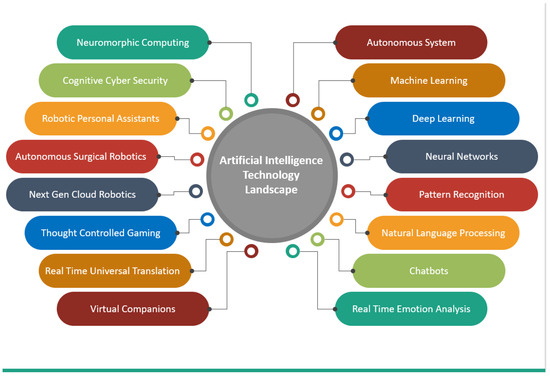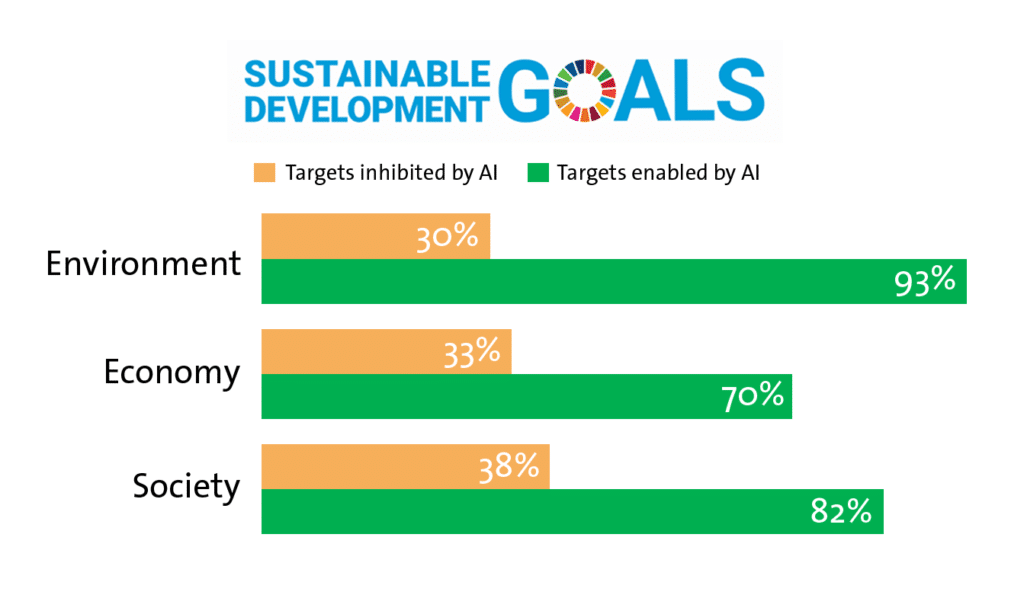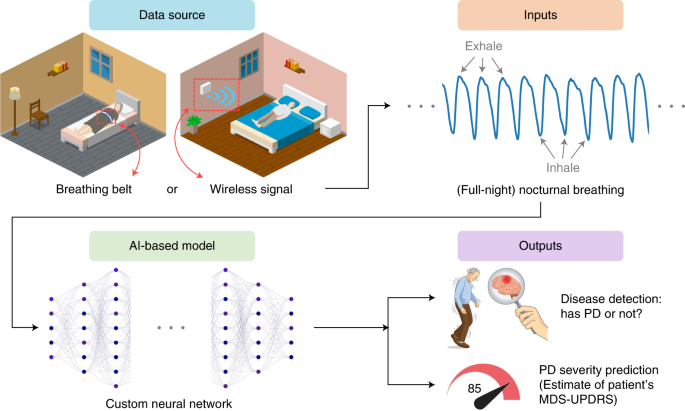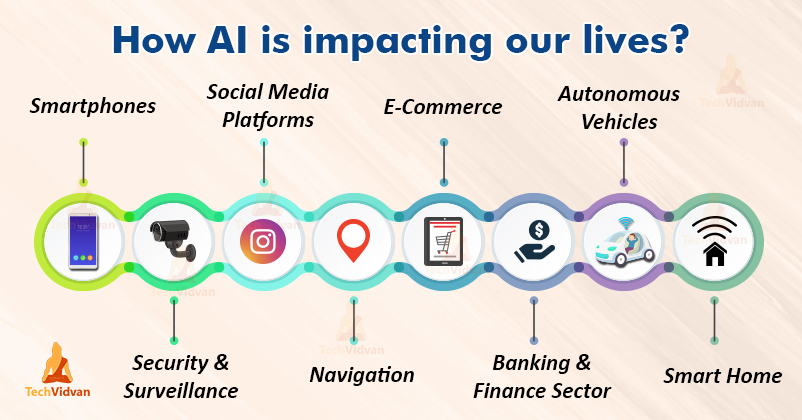The Impact of Artificial Intelligence on Human Life
Artificial intelligence has become a force to change many aspects of human life. Effects range from changes in workplace outcomes to changes in social norms. This essay explores the diverse impacts of artificial intelligence in three key areas: employment and economic impacts, advances in health, and privacy and security implications.
Artificial Intelligence Automate daily tasks to increase efficiency and create new career opportunities in the technology sector and increase efficiency . Using intelligence-based analytics tools, companies can gain insights into customer behavior, optimize operations, and update product offerings. This automation threatens existing jobs. According to a report by the World Economic Forum (WEF), artificial intelligence is expected to bring significant changes to the global workforce, creating 58 million new jobs (Figure 1) and eliminating 75 million jobs by 2022.

Figure 1
This has become a revolutionary force to improve the patient outcomes. and treatment efficacy. Early disease detection, personalized medicine and treatment planning can be facilitated by artificial intelligence algorithms (Figure 2). For example, understanding-based medical screening tools have been proven to be accurate in identifying diseases such as cancer earlier, increasing patients' risk. It is also important to use AI to manage healthcare resources, improve hospital processes, predict patient admissions, reduce waiting times and improve the medical experience.
Figure 2
Artificial Intelligence Privacy and Security Implications. The costs are significant, but there are practical and safety issues. The amount of information required to develop AI models is a real threat if not properly processed (Figure 3). AI systems can also be used for surveillance, raising ethical concerns about the balance between public safety and individual liberties. AI attacks have become more sophisticated and can identify and exploit vulnerabilities in a way that is difficult to prevent with traditional security measures. Artificial intelligence is also an effective tool to protect against cyber threats, being able to detect and react to cyber attacks faster than humans.
![]()
Figure 3
Artificial intelligence has a big impact. We offer places unlike many other places. The ethical, social, and financial implications of AI advances are important as we navigate the evolving AI landscape. Promoting dialogue between technologists, decision makers and the general public will help us harness the power of AI and reduce risks and ensure a future where technology improves more than people's lives without compromising our beliefs and principles.
Artificial intelligence (AI) has a deep and diverse impact on social relationships and lifestyle, suggesting a paradigm shift in how we communicate and govern our daily lives. AI-driven technologies, such as virtual assistants and social robots, have seamlessly blended into the fabric of human existence, providing exceptional convenience and efficiency in performing mundane activities ranging from meeting scheduling to restaurant recommendations. This integration extends to social platforms and communication tools, where AI algorithms generate personalized material, facilitating relationships with others but also impacting our social dynamics and information consumption habits (Figure 4). However, this digital connection has certain problems, including the possibility of fewer face-to-face interactions, privacy difficulties, and the reinforcement of echo chambers through automated content selection. Furthermore, the dependence on AI for social matchmaking and relationship maintenance raises concerns about the validity of connections established and maintained through digital intermediaries. Despite these limitations, artificial intelligence (AI) continues to push the boundaries of human connection, promising new ways to connect, learn, and engage with our surroundings. However, it emphasizes the importance of a balanced strategy that capitalizes on technical improvements while maintaining the essence of human connection and protecting individual privacy. As we traverse this changing terrain, the continuous conversation concerning AI's place in society becomes increasingly important, necessitating careful examination of the ramifications for social relationships and the whole human experience.
Figure 4
Artificial Intelligence (AI) is bringing about a revolutionary change in education and learning that presents equal parts of potential and obstacles. By providing individualized learning experiences that are tailored to each student's specific needs, learning preferences, and learning styles, artificial intelligence (AI) is revolutionizing traditional teaching and learning paradigms in educational environments. Artificial intelligence (AI) can evaluate a student's performance in real-time through adaptive learning technologies, providing personalized resources and feedback to improve learning and possibly close the skill gap. Additionally, by automating administrative work, AI-driven technologies and platforms are improving education by giving teachers more time to engage with students and teach. AI's contribution to education also involves democratizing learning by enabling students in underserved or rural areas to access high-quality instruction through virtual classrooms and AI-powered instructional materials. However, because not all students may have equal access to the technology needed to benefit from AI-enhanced education, this technological integration raises worries about the digital divide. The extent to which AI should be used in education is also a topic of continuous discussion, especially in light of the possible loss of important human components like social skill development and emotional support(Figure 5). Notwithstanding these obstacles, there is no denying AI's impact on education and learning. If ethical and accessibility concerns are sufficiently taken care of, AI has the potential to completely transform the educational system by making it more efficient, inclusive, and customized to each student's unique learning path.

Figure 5
In the struggle against the world's environmental problems, artificial intelligence's (AI) influence on environmental sustainability is a ray of hope and inventiveness(Figure 6). It's becoming more and more clear that artificial intelligence (AI) has the power to significantly advance our understanding of problems like climate change, conservation, and sustainable resource management. Artificial Intelligence (AI) facilitates better informed decision-making in the management of natural resources and biodiversity protection by enabling precise monitoring of environmental conditions using enhanced data analytics. For example, amazing precision in predicting climatic trends can be achieved by AI-powered algorithms, which can help build more effective measures to reduce the effects of climate change. Furthermore, artificial intelligence (AI) tools are being used in the field of conservation to trace illicit poaching activities and monitor animal populations, helping to protect endangered species. AI is also essential for optimizing energy use, whether it is through advancements in renewable energy sources that increase their efficiency and accessibility or smart grid technologies that improve the efficiency of electricity distribution. Furthermore, AI applications in agriculture—like precision farming methods—are boosting productivity and decreasing waste, which encourages the use of more environmentally friendly methods of producing food. However, a balanced approach that takes into account the carbon footprint of AI itself is necessary due to the environmental effect of developing and implementing AI technologies, particularly the enormous energy consumption associated with training large AI models. Despite these obstacles, artificial intelligence (AI) has a priceless ability to contribute to environmental sustainability by providing innovative solutions and strengthening our ability to preserve the environment for coming generations. This underscores the significance of incorporating morality and ecological responsibility into the research, development, and use of AI technologies.

Figure 6
Work cited
https://earth.org/data_visualization/ai-can-it-help-achieve-environmental-sustainable/
https://www.mdpi.com/2076-3417/13/12/7082
https://www.researchgate.net/figure/Multifaceted-impact-of-AI-in-education_fig1_373157682
https://techvidvan.com/tutorials/ai-in-human-life/
https://www.nature.com/articles/s41591-022-01932-x
https://journal.everypixel.com/ai-image-statistics


Your blog provides a comprehensive exploration of the impacts of artificial intelligence across various domains, offering insights into its transformative potential and associated challenges. Your blog covers a wide range of topics, including employment, healthcare, privacy, security, social relationships, education, and environmental sustainability. This breadth allows for a holistic understanding of AI's implications.
ReplyDeleteYour writing style is clear and concise, making it easy for readers to follow your arguments and understand the key points. Each section flows logically into the next, maintaining coherence throughout the blog.
The inclusion of figures adds visual appeal and enhances the reader's understanding of the discussed topics. Figures can effectively illustrate data and concepts, providing valuable context to support your arguments.
You offer critical analysis by presenting both the potential benefits and drawbacks of AI in each domain. This balanced approach allows for a nuanced discussion of the complex issues surrounding AI adoption.
Your blog concludes with a call to action, emphasizing the importance of ethical considerations, collaboration among stakeholders, and responsible innovation in navigating the AI landscape. This encourages readers to reflect on the broader implications of AI and consider their roles in shaping its future.
Overall, your blog effectively explores the diverse impacts of artificial intelligence while encouraging thoughtful reflection on the ethical and societal implications of AI adoption. Well done!
I love your article, it's very good! The paper effectively highlights the multifaceted impact of AI on human life, weaving together its impact on employment, healthcare, privacy, social interaction, education, and environmental sustainability. The discussion was comprehensive and touched on the potential benefits and challenges posed by AI, thus providing a balanced view. Particularly commendable is the article's ability to cite concrete examples, such as the use of AI in disease detection and environmental protection, which makes the abstract concept of AI more tangible and relevant.
ReplyDelete